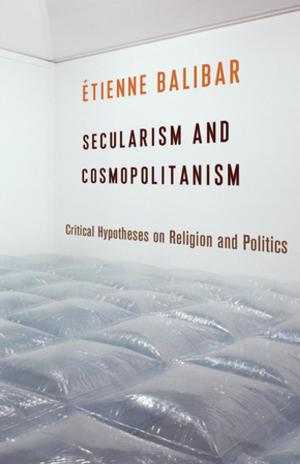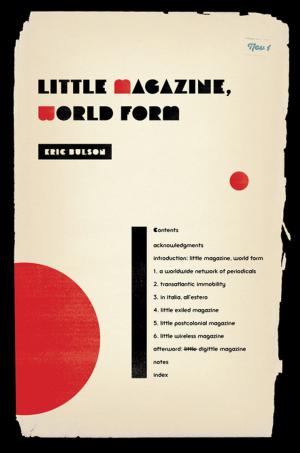Modernism at the Barricades
Aesthetics, Politics, Utopia
Fiction & Literature, Literary Theory & Criticism, European, Nonfiction, Social & Cultural Studies, Political Science, Politics, History & Theory, Social Science| Author: | Stephen Eric Bronner | ISBN: | 9780231530880 |
| Publisher: | Columbia University Press | Publication: | July 10, 2012 |
| Imprint: | Columbia University Press | Language: | English |
| Author: | Stephen Eric Bronner |
| ISBN: | 9780231530880 |
| Publisher: | Columbia University Press |
| Publication: | July 10, 2012 |
| Imprint: | Columbia University Press |
| Language: | English |
Stephen Eric Bronner revisits the modernist project's groundbreaking innovations, itsexperimental imagination, and its utopian politics. Reading the artistic and intellectual achievements of the movement's leading figures against larger social, political, and cultural trends, he follows the rise of a flawed yet salient effort at liberation and its confrontation with modernity.
Modernism at the Barricades features chapters on expressionism, futurism, surrealism, and revolutionary art and includes fresh perspectives on the work of Arnold Schoenberg, Wassily Kandinsky, and Emil Nolde, among others. The volume illuminates an international avant garde intent on resisting bureaucracy, standardization, scientific rationality, and the increasing commodification of mass culture. Modernists sought new ways of feeling, new forms of expression, and new possibilities of experience while seeking to refashion society. Liberation was their aim, along with the invigoration of daily life—yet their process entangled political resistance with the cultural.
Exploring both the political responsibility of the artist and the manipulation of authorial intention, Bronner reconfigures the modernist movement for contemporary progressive purposes and offers insight into the problems still complicating cultural politics. He ultimately reasserts the political dimension of developments often understood in purely aesthetic terms and confronts the self-indulgence and political irresponsibility of certain so-called modernists today. The result is a long overdue reinterpretation and rehabilitation of the modernist legacy for a new age.
Stephen Eric Bronner revisits the modernist project's groundbreaking innovations, itsexperimental imagination, and its utopian politics. Reading the artistic and intellectual achievements of the movement's leading figures against larger social, political, and cultural trends, he follows the rise of a flawed yet salient effort at liberation and its confrontation with modernity.
Modernism at the Barricades features chapters on expressionism, futurism, surrealism, and revolutionary art and includes fresh perspectives on the work of Arnold Schoenberg, Wassily Kandinsky, and Emil Nolde, among others. The volume illuminates an international avant garde intent on resisting bureaucracy, standardization, scientific rationality, and the increasing commodification of mass culture. Modernists sought new ways of feeling, new forms of expression, and new possibilities of experience while seeking to refashion society. Liberation was their aim, along with the invigoration of daily life—yet their process entangled political resistance with the cultural.
Exploring both the political responsibility of the artist and the manipulation of authorial intention, Bronner reconfigures the modernist movement for contemporary progressive purposes and offers insight into the problems still complicating cultural politics. He ultimately reasserts the political dimension of developments often understood in purely aesthetic terms and confronts the self-indulgence and political irresponsibility of certain so-called modernists today. The result is a long overdue reinterpretation and rehabilitation of the modernist legacy for a new age.















